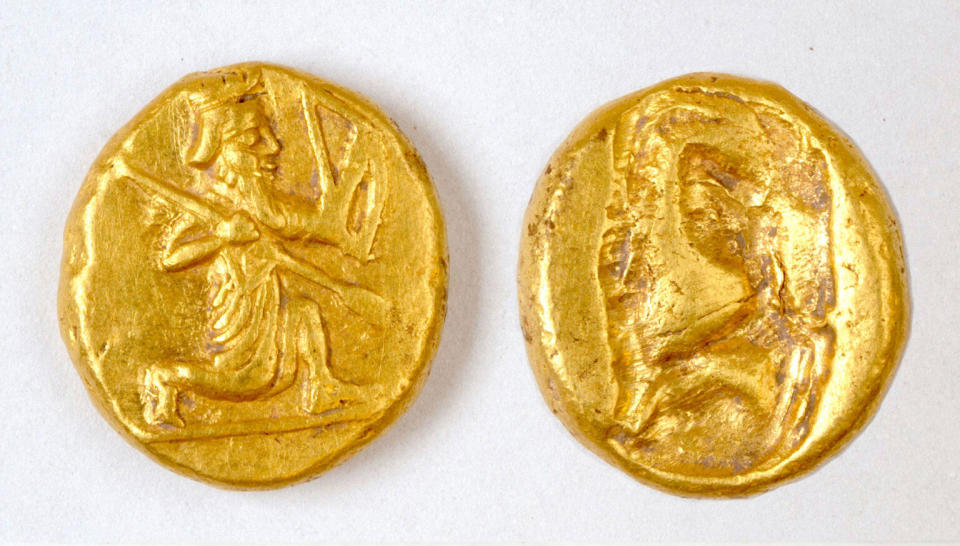Researchers from the University of Michigan’s Notion Archaeological Project have struck gold. The team of archeologists discovered a “hoard of gold coins” from the Persian Empire in western Turkey.
The researchers announced the “very rare” find in a news release on Friday.
The design of the coins – which features the figure of a kneeling archer – is consistent with the daric, a type of gold coin used in the Persian empire, according to the release. The coins were used from the late 6th century B.C. until Alexander the Great’s conquest of the Persian empire in 330 B.C. Researchers believe the daric was mainly used to pay mercenary troops.
The team found the stash of coins, alongside other artifacts, in a small pot buried under a large house in the center of the ancient Greek city of Notion, which was intermittently part of the Persian empire during the time the coins were in circulation.
“Presumably, it was stored there for safekeeping and for some reason never recovered,” said Christopher Ratté, a professor of classical studies at the University of Michigan and director of the Notion Archaeological Project.

The discovery was made in 2023 and was made public last week after permission from the Turkish Ministry of Culture and Tourism.
“This is a spectacular find … of the highest importance,” said Andrew Meadows of Oxford University, formerly curator of coins at the British Museum and the American Numismatic Society.
Researchers say the coins, some of which date back to the 5th century B.C., will provide another “datapoint” as they map the daric’s timeline.
“This hoard will provide a firm date that can serve as an anchor to help fix the chronology of the (entire sequence of coins),” Ratté said.
The stashing of the coins most likely resulted from some sort of conflict in and around Notion, which was a hotspot for military operations. Researchers say the hoard probably ended up in its resting place due to a blunder by the owners.
“No one ever buries a hoard of coins, especially precious metal coins, without intending to retrieve it,” said Ratté. “So only the gravest misfortune can explain the preservation of such a treasure.”
Source Agencies



